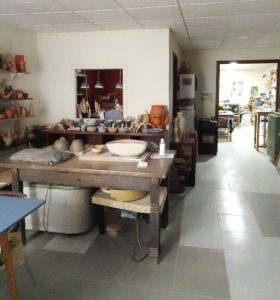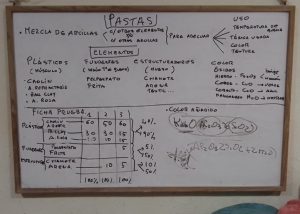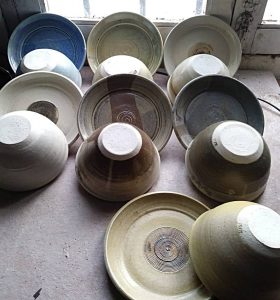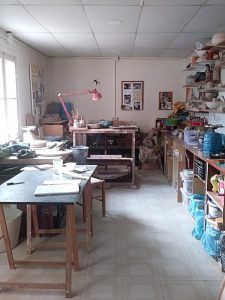
The workshop includes the traditional meaning of the term “ alfar ” in terms of a family productive unit (home-workshop) and the place where the trade is taught (school).
The production carried out in it can be framed within three basic families of objects:
UTILITARIES: Sets of tea, coffee, bowls, jugs …,
DECORATIVE: Vases, flower vases, paintings …
UNIQUE PIECE: Sculpture of various formats and finishes. Murals for architectural applications.
It also works on request, personalizing the objects in relation to the requirements and needs of the people or entities interested in said products.
The techniques used are RAKU (1060ºC) and GRÉS (1260ºC), using plates, aduja and the traditional potter’s wheel for their manufacture.
Both the pastes and the enamels are prepared in the workshop from minerals (kaolin, feldspar …) with the incorporation of some local elements (clay, sand …) and the recycling of others (ash, glass …).
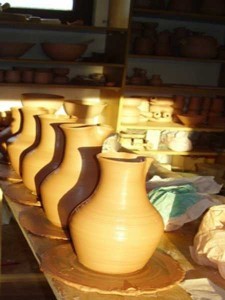
RAKU ( 1060ºC )
Objects made with this technique combine soft enamel, generally applied in the interiors, metallic shine, with reduced black clay.
The pieces are removed from the oven when they reach 1060 ° C temperature and covered with dry vegetable material (sawdust, leaves, grass …) so that the chemical reduction process (lack of oxygen) happens. After a variable period of time the pieces are placed in a container with water. These abrupt changes are what make each piece unique, given the variety of possible nuances.
STONEWARE (1260 ° C)
All pieces made in the workshop are waterproof since our clays are formulated so that at this temperature they reach their point of maturity along with the enamel. This fact allows their safe domestic use and can be used for eating, cooking in the oven or to store liquids.
All the pieces, because they are manufactured without casting, are susceptible to variations in both dimension and in its shape or color.
